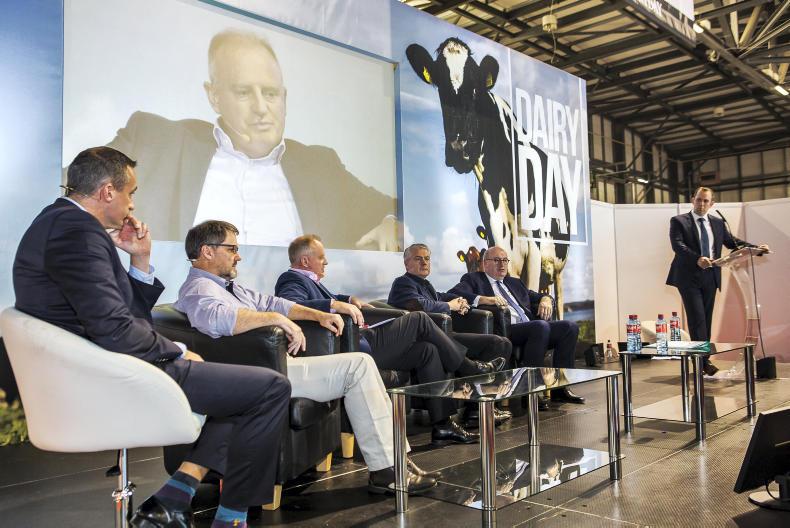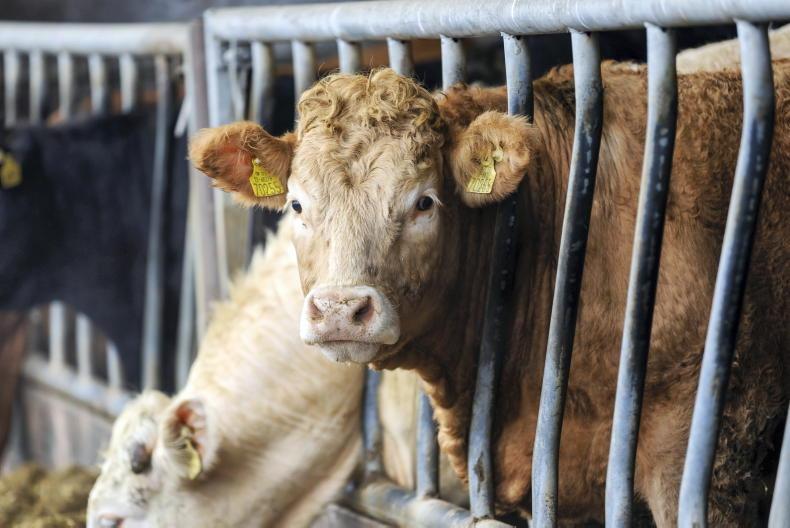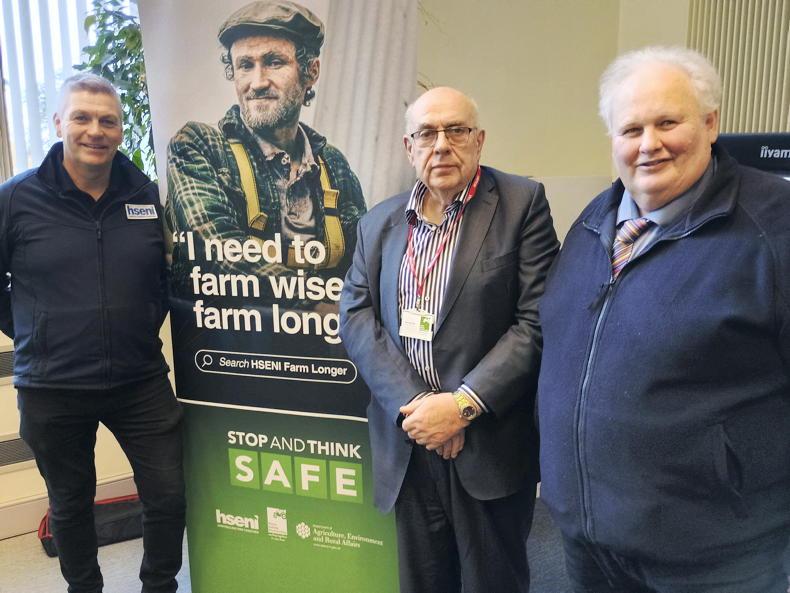“I caution against size being a substitute for a good strategy,” said Paul Finnerty, the former chief executive of ABP and now head of the agtech investment firm The Yield Lab in Ireland.
Not a dairy man himself, Finnerty learned this lesson in the beef industry, including when dealing with UK supermarkets.
“The retailers – the smartest people in the chain apparently – got their strategy fundamentally wrong. They raced for size when customers wanted smaller stores,” he said.
As a result, their margins eroded from 5 to 6% a few years ago to 2% today, he added.
Faraway growth markets or affluent consumers around us?
Irish Farmers Journal agribusiness editor Eoin Lowry said the Irish dairy sector had to decide whether the additional 3bn litres of milk expected in the next 10 years would be dried and shipped as low-cost commodities to those markets where population is growing around the world, or target local EU and US markets where consumers who want high quality, diversified products and are prepared to pay a premium for them.
“They take different investment decisions. That’s the first discussion that the industry needs to have,” Lowry said.
I’ve never seen a food company operate successfully in both these worlds
Craig Bell, a New Zealand dairy analyst and head of the large dairy company Leitissimo in Brazil, agreed. “Food breaks down into basic staples, and impulse purchases. There’s nothing in between,” he said. “I’ve never seen a food company operate successfully in both these worlds.”
Ornua chief executive Kevin Lane added the digital dimension, saying that “a company that doesn’t have an online strategy to work with will be in serious trouble.”
Ornua has a dedicated team working on this and Finnerty pointed out that half the growth in retail sales in the US currently comes just one company – Amazon.
Having relatively small Irish co-ops competing on global markets brings prices down for Irish farmers
To face upcoming challenges, Irish processors may have to work more closely together or concentrate. Lane and Finnerty both said that having relatively small Irish co-ops competing on global markets brings prices down for Irish farmers.
Finnerty added that crucial efforts such as research into the health benefits of dairy foods were too large to undertake for a single company.
Finnerty also highlighted the need to improve sustainability credentials.
“Huge damage has been done to the environment by the food industry in the last 50 years. We need to make a stronger argument. Our Origin Green argument is not even resonating with our citizen’s assembly.”
He and Lane agreed that Brexit was the largest challenge facing the dairy industry, with Lane also mentioning the recruitment of qualified workers.
Read more
Dairy Day: Kerry and Arrabawn plan up to €80m investment
Full coverage: Dairy Day 2017
“I caution against size being a substitute for a good strategy,” said Paul Finnerty, the former chief executive of ABP and now head of the agtech investment firm The Yield Lab in Ireland.
Not a dairy man himself, Finnerty learned this lesson in the beef industry, including when dealing with UK supermarkets.
“The retailers – the smartest people in the chain apparently – got their strategy fundamentally wrong. They raced for size when customers wanted smaller stores,” he said.
As a result, their margins eroded from 5 to 6% a few years ago to 2% today, he added.
Faraway growth markets or affluent consumers around us?
Irish Farmers Journal agribusiness editor Eoin Lowry said the Irish dairy sector had to decide whether the additional 3bn litres of milk expected in the next 10 years would be dried and shipped as low-cost commodities to those markets where population is growing around the world, or target local EU and US markets where consumers who want high quality, diversified products and are prepared to pay a premium for them.
“They take different investment decisions. That’s the first discussion that the industry needs to have,” Lowry said.
I’ve never seen a food company operate successfully in both these worlds
Craig Bell, a New Zealand dairy analyst and head of the large dairy company Leitissimo in Brazil, agreed. “Food breaks down into basic staples, and impulse purchases. There’s nothing in between,” he said. “I’ve never seen a food company operate successfully in both these worlds.”
Ornua chief executive Kevin Lane added the digital dimension, saying that “a company that doesn’t have an online strategy to work with will be in serious trouble.”
Ornua has a dedicated team working on this and Finnerty pointed out that half the growth in retail sales in the US currently comes just one company – Amazon.
Having relatively small Irish co-ops competing on global markets brings prices down for Irish farmers
To face upcoming challenges, Irish processors may have to work more closely together or concentrate. Lane and Finnerty both said that having relatively small Irish co-ops competing on global markets brings prices down for Irish farmers.
Finnerty added that crucial efforts such as research into the health benefits of dairy foods were too large to undertake for a single company.
Finnerty also highlighted the need to improve sustainability credentials.
“Huge damage has been done to the environment by the food industry in the last 50 years. We need to make a stronger argument. Our Origin Green argument is not even resonating with our citizen’s assembly.”
He and Lane agreed that Brexit was the largest challenge facing the dairy industry, with Lane also mentioning the recruitment of qualified workers.
Read more
Dairy Day: Kerry and Arrabawn plan up to €80m investment
Full coverage: Dairy Day 2017










SHARING OPTIONS